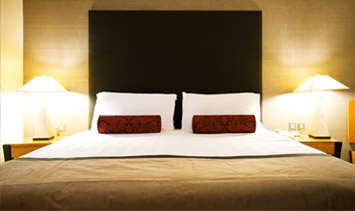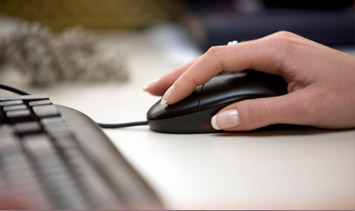Booking Partners Business Travel Safety Tips
In our previous article we talked about travel managers keeping control of their travel policy and one of the things mentioned was "duty of care" for their staff while they were travelling for business reasons. While companies must take responsibility of ensuring the safety and security of their staff while they are on company trips, staff must also take responsibility for "travelling safely". It's vital that they do all they can to look after themselves and stay safe, wherever they go.
This article touches upon some basic business travel safety tips (for travel in the UK and/or abroad) which will help business travellers stay safe. Here are our tips to saying safe:
Before Leaving Home
- Make sure you are aware of your companies travel duty of care policy/procedures e.g. inform your company when you arrive at your destination or if you plan to go somewhere not on your itinerary so that they can keep track of you.
- Make a note of emergency telephone numbers so you know who to contact if things go wrong.
- Take a copy (scan or photograph using your mobile phone) all your travel documents e.g. your passport, any travel and medical insurance information and business hotel booking information. Then if any of these are stolen or go missing you'll have a copy which will help speed things up considerably when you need help or replacements.
- Carry your medical insurance documents with you at all times. This will ensure that if the worst happens and you need medical treatment that you will be treated promptly and you won't have to worry about if and how your medical bills/expenses will be paid.
- Check you are up to date with any immunisations (if required) and take any medication you need (along with your repeat prescription notes in case you are questioned about the medication you are carrying).
- Don't forget to pack your smartphone charger so you can keep your smartphone charged. It's not only a business necessity it's also a smart safety precaution.
- Use your business and hotel address, not your personal address on any luggage labels. That way if anyone at the airport pays attention to your address it won't leave your potentially empty house at the mercy of burglars.
- Since labels outside your baggage can fall off it also makes sense to have a note of your business and hotel address inside your bag as well.
Using a Rental or Company Car
- Take some time to familiarise yourself with the car's headlights, hazard lights, and locks before you drive off.
- Find out who you should contact in the case of an accident or if the car breaks down.
- Plan your route or program your Sat-Nav in advance and have a map as backup. If you get lost pull over only in well-lit, populated areas to ask for directions.
Airport Safety
- We're all used to being asked "Did you pack your own luggage" so it should come as no surprise that one of our safety tips is to never carry anything given to you by strangers.
- You should also keep your luggage with you at all times to ensure it's not tampered with and that airport security doesn't see it as a security threat.
- You should always keep briefcases, handbags and coats etc. with you. Don't put them down anywhere that isn't in your direct line of sight and don't hang them over the back of a chair.
- Keep your travel documents and any valuables you are carrying in a safe place. It's advisable to carry your money, cheques, credit cards, etc. in an inner pocket close to your body.
- If you are worried about your baggage being tampered with you can take the extra precaution of sealing your baggage with tamper proof labels. You can then take a photograph of your baggage to show how it looked when you checked it in.
When You Arrive At Your Destination/Hotel
- When you check in ask what number to call in an emergency and how to contact reception.
- Check your valuables into the hotel safe. Get a written receipt for anything you leave and find out whether you're covered in case of loss.
- You may decide you'd prefer to use the room safe if you have one. If you're using the room safe don't forget to remove your items before you leave and head for home.
- Avoid using the "clean my room now" sign as it signals your room is empty.
- Don't forget to lock your hotel room if it doesn't lock automatically.
- Before going to bed put your shoes, room key, wallet or purse and smartphone close to hand so you don't have to try to find these items in the case of an emergency.
- Identify a fire escape route. Check the location of the nearest stairwell and/or emergency exit and walk the route so you know exactly where to go if there is a fire in the hotel.
- Make sure to put away your room key when having breakfast, lunch or dinner (don't leave it on the table). If there was someone behind you when you checked in for your meal they may hear your room number and will know that your room is likely to be empty while you eat.
- Don't open the door for just anyone. It might sound extreme but if someone claims to be hotel staff and you aren't expecting them, call the reception to check they are who they say they are.
When You're Out and About
- When you're going out, consider leaving the TV on, alternatively put the "Do not disturb" sign on the door. This will give potential thieves the impression that your room is occupied.
- When you leave the hotel don't wear expense jewellery or flash your cash or any valuable personal possessions like tablets or phones etc. as these will only be a temptation for thieves.
Employing a few or all of the above tips will help keep you safe(r) on your business trip.
The few minutes it will take you to properly prepare for your trip and take some simple precautions could mean the difference between being protected and out of harm's way or being at risk. For more business travel tips go to the Booking Partners articles section on our website.





